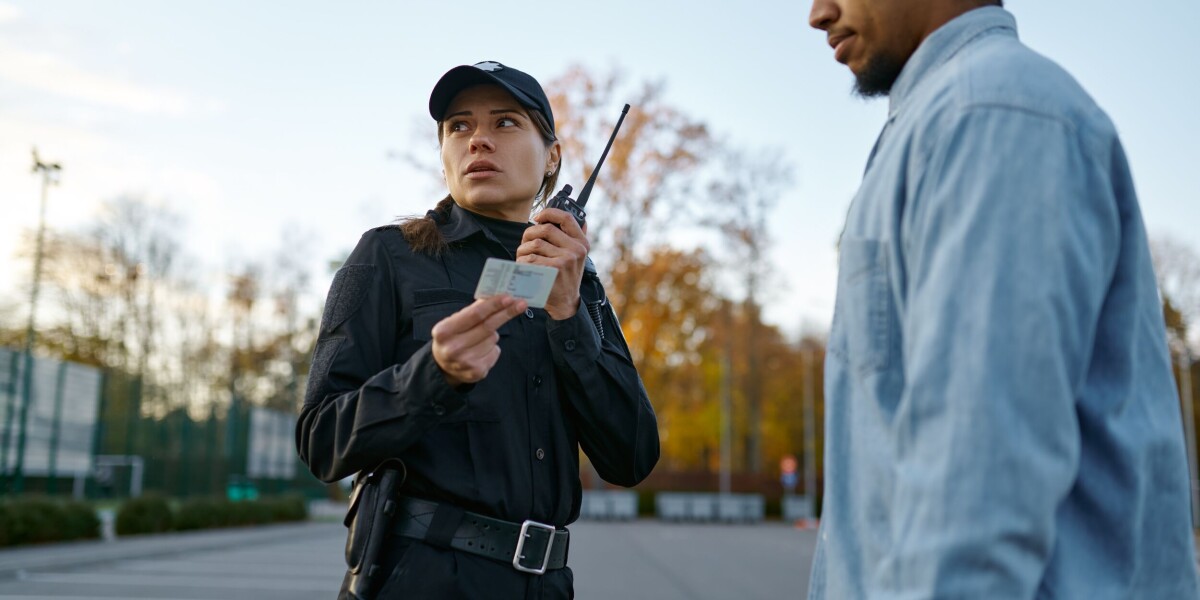
- Select a language for the TTS:
- UK English Female
- UK English Male
- US English Female
- US English Male
- Australian Female
- Australian Male
- Language selected: (auto detect) - EN
Play all audios:
WE LOOK AT WHAT POLICE WILL ACCEPT IF YOU NEED TO PROVE YOUR IDENTITY AND WHAT THEIR RIGHTS ARE REGARDING THIS READER QUESTION: IS IT CORRECT THAT I NEED TO BE ABLE TO PROVE MY IDENTITY WITH
AN OFFICIAL ID DOCUMENT WHEN OUT AND ABOUT IN FRANCE? IF SO, WHAT IS ACCEPTED? It is mostly true that you need to carry some form of official ID on you at all times while out and about in
France - and this applies to residents and visitors. If stopped, you must be able to produce a valid form of ID, or otherwise it is theoretically possible for police to detain you for up to
four hours to run checks. Identity checks are rare but can be carried out by police officers for a variety of reasons, for example if they think it is necessary to prevent harm of some kind
or that you might be involved in some way in illegal activity or have information about a crime. Foreign people can also be checked to ensure they are legal residents. To avoid the potential
distress of having to be questioned at a police station, it is advisable to have a valid form of ID on you when out and about. If you do not want to carry around the physical or original
form of ID, photocopies (of good quality and ideally in colour), will be accepted by the police. Note that foreign people should also be able to prove their right to be in the country, eg.
with a passport or a _carte de séjour _(in the latter case if carrying a photocopy, it should show both sides). READ MORE: JERSEY LETS FRENCH DAY-TRIPPERS USE ID CARDS IN BID TO BOOST
VISITORS WHAT FORMS OF ID COUNT AS VALID? If you are asked to prove your identity, you can present a passport, valid French ID card if appropriate, or a driving licence. Non-citizen
residents in France can also show their French _carte de séjour._ A _carte Vitale_, electoral card, or French birth certificate (_acte de naissance_), if reissued less than three months ago
[these are often used by French people and they are updated with life events such as marriages and the birth of children, which is why up-to-date versions are requested], are also options.
Note that during ID checks in other contexts (so not by the police) not all of these documents may be accepted. For example, recently, a traveller was fined for FAILING TO PROVIDE VALID ID
ON A FRENCH TRAIN, despite showing their _carte Vitale_. The company responded that institutions can choose what they class as valid forms of ID outside of always-accepted valid passports
and ID cards. Another example of this is at a bank, where a driving licence may not be accepted as valid ID, and in many cases to open a bank account in France, non-EU citizens will need to
produce a residency card. RELATED ARTICLES MUST WE CARRY CARTE DE SÉJOUR AT ALL TIMES IN FRANCE? HOW TO USE FRENCH POST OFFICE’S NEW ONLINE IDENTITY SYSTEM






